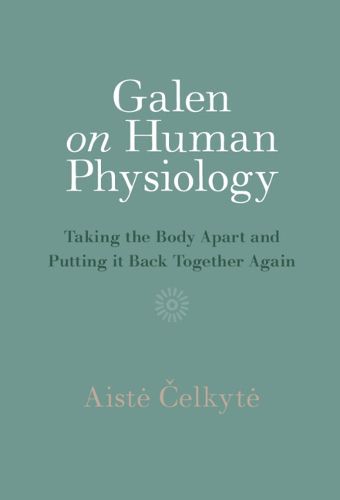Readings Newsletter
Become a Readings Member to make your shopping experience even easier.
Sign in or sign up for free!
You’re not far away from qualifying for FREE standard shipping within Australia
You’ve qualified for FREE standard shipping within Australia
The cart is loading…






Galen of Pergamum, known as 'the prince of medicine', is an important figure not only for the history of medicine but also for ancient philosophy, history of ideas and cultural history. In this book, Aiste Celkyte explores Galenic physiology and examines how this highly influential figure theorised the unity of the multi-part, ever-moving and ever-changing human body. She approaches this question by first studying how Galen 'takes the body apart', that is, the different divisions of the body into parts that he proposes, and then how he 'puts it back together', that is, his use of philosophical tools to posit the vital unity among these parts. She then looks at Galen's theorisation of human nature, his understanding of parthood, the hierarchies between the parts that underpin vital functions, the 'mechanisms' that make the body one, and Galen's understanding of the body as a multifaceted but unified whole.
$9.00 standard shipping within Australia
FREE standard shipping within Australia for orders over $100.00
Express & International shipping calculated at checkout
Galen of Pergamum, known as 'the prince of medicine', is an important figure not only for the history of medicine but also for ancient philosophy, history of ideas and cultural history. In this book, Aiste Celkyte explores Galenic physiology and examines how this highly influential figure theorised the unity of the multi-part, ever-moving and ever-changing human body. She approaches this question by first studying how Galen 'takes the body apart', that is, the different divisions of the body into parts that he proposes, and then how he 'puts it back together', that is, his use of philosophical tools to posit the vital unity among these parts. She then looks at Galen's theorisation of human nature, his understanding of parthood, the hierarchies between the parts that underpin vital functions, the 'mechanisms' that make the body one, and Galen's understanding of the body as a multifaceted but unified whole.